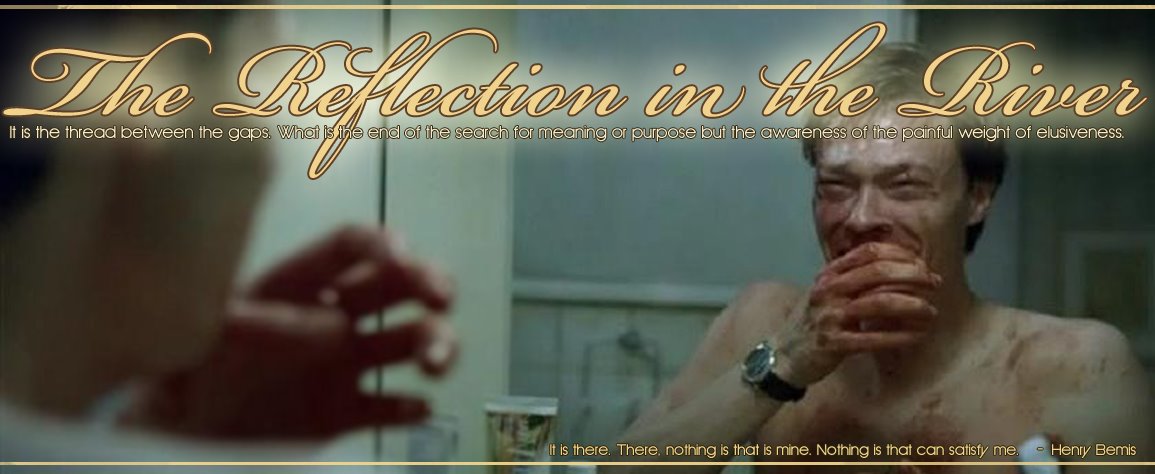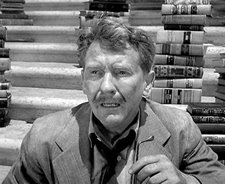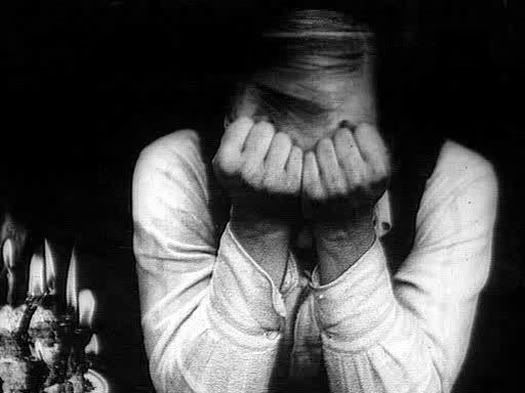Extended Excerpt- Jude the Obscure
The is the extended excerpt from Part Sixth Chapter II, regarding the death of Little Father Time
The failure to find another lodging, and the lack of room in this house for his father, had made a deep impression on the boy--abrooding undemonstrative horror seemed to have seized him. The silence was broken by his saying: "Mother, WHAT shall we do to-morrow!"
"I don't know!" said Sue despondently. "I am afraid this will trouble your father."
"I wish Father was quite well, and there had been room for him! Then it wouldn't matter so much! Poor Father!"
"It wouldn't!"
"Can I do anything?"
"No! All is trouble, adversity, and suffering!"
"Father went away to give us children room, didn't he?"
"Partly."
"It would be better to be out o' the world than in it, wouldn't it?"
"It would almost, dear."
"'Tis because of us children, too, isn't it, that you can't get agood lodging?"
"Well--people do object to children sometimes."
"Then if children make so much trouble, why do people have 'em?"
"Oh--because it is a law of nature."
"But we don't ask to be born?"
"No indeed."
"And what makes it worse with me is that you are not my real mother,and you needn't have had me unless you liked. I oughtn't to have come to 'ee--that's the real truth! I troubled 'em in Australia, and I trouble folk here. I wish I hadn't been born!"
"You couldn't help it, my dear."
"I think that whenever children be born that are not wanted theyshould be killed directly, before their souls come to 'em, and not allowed to grow big and walk about!"
Sue did not reply. She was doubtfully pondering how to treat this too reflective child. She at last concluded that, so far as circumstances permitted, shewould be honest and candid with one who entered into her difficulties like an aged friend.
"There is going to be another in our family soon," she hesitatingly remarked.
"How?"
"There is going to be another baby."
"What!" The boy jumped up wildly. "Oh God, Mother, you've never a-sent for another; and such trouble with what you've got!"
"Yes, I have, I am sorry to say!" murmured Sue, her eyes glistening with suspended tears.
The boy burst out weeping. "Oh you don't care, you don't care!" he cried in bitter reproach. "How EVER could you, Mother, be so wicked and cruel as this, when you needn't have done it till we was better off, and Father well! To bring us all into MORE trouble! No room for us, and Father a-forced to go away, and we turned out to-morrow; and yet you be going to have another of us soon! ... 'Tis done o'purpose!--'tis--'tis!" He walked up and down sobbing.
"Y-you must forgive me, little Jude!" she pleaded, her bosom heaving now as much as the boy's. "I can't explain--I will when you are older. It does seem--as if I had done it on purpose, now we are in these difficulties! I can't explain, dear! But it--is not quite onpurpose--I can't help it!"
"Yes it is--it must be! For nobody would interfere with us, like that, unless you agreed! I won't forgive you, ever, ever! I'll never believe you care for me, or Father, or any of us any more!" He got up, and went away into the closet adjoining her room, in which a bed had been spread on the floor.
There she heard him say: "If we children was gone there'd be no trouble at all!"
"Don't think that, dear," she cried, rather peremptorily. "But go to sleep!"
The following morning she awoke at a little past six, and decided to get up and run across before breakfast to the inn which Jude had informed her to be his quarters, to tell him what had happened before he went out.
She arose softly, to avoid disturbing the children,who, as she knew, must be fatigued by their exertions of yesterday.
She found Jude at breakfast in the obscure tavern he had chosen as a counterpoise to the expense of her lodging: and she explained to him her homelessness. He had been so anxious about her all night, he said.
Somehow, now it was morning, the request to leave the lodgings did not seem such a depressing incident as it had seemed the nightbefore, nor did even her failure to find another place affect her sodeeply as at first. Jude agreed with her that it would not be worthwhile to insist upon her right to stay a week, but to take immediate steps for removal.
"You must all come to this inn for a day or two," he said. "It is a rough place, and it will not be so nice for the children, but we shall have more time to look round. There are plenty of lodgings in the suburbs--in my old quarter of Beersheba. Have breakfast with me now you are here, my bird. You are sure you are well? There will be plenty of time to get back and prepare the children's meal before they wake. In fact, I'll go with you."
She joined Jude in a hasty meal, and in a quarter of an hour they started together, resolving to clear out from Sue's too respectable lodging immediately. On reaching the place and going upstairs she found that all was quiet in the children's room, and called to the landlady in timorous tones to please bring up the tea-kettle and something for their breakfast. This was perfunctorily done, and producing a couple of eggs which she had brought with her she put them into the boiling kettle, and summoned Jude to watch them for the youngsters, while she went to call them, it being now about half-past eight o'clock.
Jude stood bending over the kettle, with his watch in his hand,timing the eggs, so that his back was turned to the little inner chamber where the children lay. A shriek from Sue suddenly caused him to start round. He saw that the door of the room, or rather closet--which had seemed to go heavily upon its hinges as she pushed it back--was open, and that Sue had sunk to the floor just within it. Hastening forward to pick her up he turned his eyes to the littlebed spread on the boards; no children were there. He looked in bewilderment round the room. At the back of the door were fixed two hooks for hanging garments, and from these the forms of the two youngest children were suspended, by a piece of box-cord round each of their necks, while from a nail a few yards off the body of little Jude was hanging in a similar manner. An overturned chair was near the elder boy, and his glazed eyes were slanted into the room; but those of the girl and the baby boy were closed.
Half-paralyzed by the strange and consummate horror of the scene he let Sue lie, cut the cords with his pocket-knife and threw the three children on the bed; but the feel of their bodies in the momentary handling seemed to say that they were dead.
He caught up Sue, who was in fainting fits, and put her on the bed in the other room, after which he breathlessly summoned the landlady and ran out for a doctor.
When he got back Sue had come to herself, and the two helpless women, bending over the children in wild efforts to restore them, and the triplet of little corpses, formed a sight which overthrew his self-command.
The nearest surgeon came in, but, as Jude had inferred, his presence was superfluous. The children were past saving, for though their bodies were still barely cold, it was conjectured that they had been hanging more than an hour. The probability held by the parents later on, when they were able toreason on the case, was that the elder boy, on waking, looked intothe outer room for Sue, and, finding her absent, was thrown into afit of aggravated despondency that the events and information of theevening before had induced in his morbid temperament. More over a piece of paper was found upon the floor, on which was written, in the boy's hand, with the bit of lead pencil that he carried:
_Done because we are too menny._
At sight of this Sue's nerves utterly gave way, an awful conviction that her discourse with the boy had been the main cause of the tragedy, throwing her into a convulsive agony which knew no abatement. They carried her away against her wish to a room on the lower floor; and there she lay, her slight figure shaken with her gasps, and her eyes staring at the ceiling, the woman of the house vainly trying to soothe her.
They could hear from this chamber the people moving about above, and she implored to be allowed to go back, and was only kept from doing so by the assurance that, if there were any hope, her presence might do harm, and the reminder that it was necessary to take care of herself lest she should endanger a coming life. Her inquiries were incessant, and at last Jude came down and told her there was no hope. As soon as she could speak she informed him what she had said to the boy, and how she thought herself the cause of this.
"No," said Jude. "It was in his nature to do it. The doctor says there are such boys springing up amongst us--boys of a sort unknown in the last generation--the outcome of new views of life. They seem to see all its terrors before they are old enough to have staying power to resist them. He says it is the beginning of the coming universal wish not to live. He's an advanced man, the doctor: but he can give no consolation to--"
Jude had kept back his own grief on account of her; but he now broke down; and this stimulated Sue to efforts of sympathy which in some degree distracted her from her poignant self-reproach. When everybody was gone, she was allowed to see the children.
The boy's face expressed the whole tale of their situation. On that little shape had converged all the inauspiciousness and shadow which had darkened the first union of Jude, and all the accidents, mistakes, fears, errors of the last. He was their nodal point, their focus, their expression in a single term. For the rashness of those parents he had groaned, for their ill assortment he had quaked, and for the misfortunes of these he had died.
When the house was silent, and they could do nothing but await the coroner's inquest, a subdued, large, low voice spread into the air of the room from behind the heavy walls at the back.
"What is it?" said Sue, her spasmodic breathing suspended.
"The organ of the college chapel. The organist practising I suppose.It's the anthem from the seventy-third Psalm; 'Truly God is lovingunto Israel.'"
She sobbed again. "Oh, oh my babies! They had done no harm! Whyshould they have been taken away, and not I!"
There was another stillness--broken at last by two persons inconversation somewhere without.
"They are talking about us, no doubt!" moaned Sue.
"'We are made a spectacle unto the world, and to angels, and to men!'"





